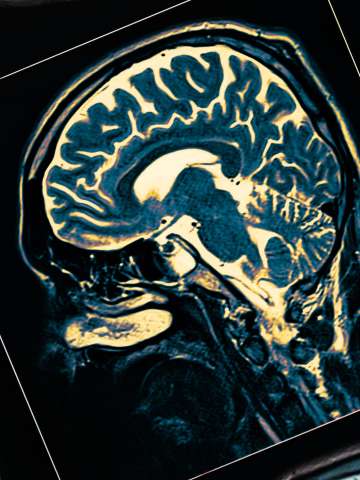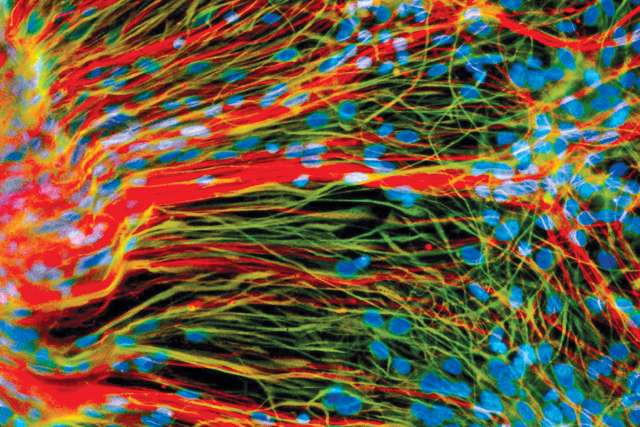Cerebrovascular Neurosurgery
Our fellowship-trained cerebrovascular surgeons use the most sophisticated techniques to safely and effectively treat a variety of cerebrovascular conditions.

Why choose UCLA Health for cerebrovascular disease care?
Receiving a diagnosis of cerebrovascular disease can be frightening, and chances are you have a lot of questions and concerns. UCLA understands this and we are here to help. If you have a vascular disorder of the brain – also called a cerebrovascular disorder – where you go for treatment is crucial. These conditions require surgeons who have the skill and expertise to manage them effectively. And that’s exactly what you can expect from the UCLA cerebrovascular team.
The UCLA Neurology and Neurosurgery programs have been consistently recognized by U.S. News & World Report among the top in the nation. Our dedication to ongoing research and advanced clinical trials means that you will have access to the most innovative treatments, techniques and technology available.
Our approach to care
The cerebrovascular conditions we treat are complex and challenging, but they can be successfully managed in the skilled hands of our experienced neurosurgeons. When you choose UCLA for treatment of your cerebrovascular condition, you will find:
- Collaborative review of cases: Our surgeons take a team approach to treating cerebrovascular diseases. This means that patients get the expertise of several top physicians weighing in on the best treatments and protocols.
- Patient-centered care: Our caring staff makes sure each patient gets the best, most individualized care for their unique situation.
- History of innovation: Many of the lifesaving techniques and devices used worldwide in the treatment of cerebrovascular disease were pioneered at UCLA. Ongoing research, including clinical trials sponsored by the National Institutes of Health, allows us to continue to provide the best care and outcomes for our patients.
- Advanced technology: Our team works with industry partners to help develop and test new tools and devices for the treatment of cerebrovascular disorders. That means we have early access to, and expertise with, the latest technology.
- High volume: Many of the conditions we treat are rare, but we see among the highest volumes of these complex cases in the western United States. That means our surgeons have more advanced skills, leading to better outcomes for our patients.
- Expert team: Everyone on our staff – from our skilled neurosurgeons to our nurses and physical therapists – is experienced in caring for the specific needs of patients with complex cerebrovascular diseases. At every step, patients get the specialized care they need throughout their recovery to help them return home sooner.
Conditions we treat
Our team of experts provides each patient with a comprehensive evaluation, imaging and other diagnostic testing. We then formulate a customized treatment plan. Conditions that we treat include:
- Aneurysm
- AVMs
- Moyamoya
- Dural Arteriovenous Fistula (DAVF)
- Spinal vascular malformations
- Chronic subdural hematoma
- Cavernous malformation
- Carotid stenosis
- Intracerebral hemorrhage (ICH)
- Subarachnoid hemorrhage (SAH)
Treatments we offer
Our skilled surgeons perform thousands of treatments every year on patients with a variety of cerebrovascular conditions. Depending on your diagnosis, possible treatments could include:
- Microsurgery: When your condition calls for brain surgery, we are able to customize our approach, using the latest technologies (including 3-D virtual reality) to make it safer and less invasive, with faster recovery times and better outcomes.
- Endovascular surgery: We use minimally invasive endovascular techniques whenever possible. These include flow diversion, coiling, placement of stents and blockage of blood vessels into arteriovenous malformations (AVM) and tumors.
- Micro-coiling: Small platinum wires called coils are placed into aneurysms to seal them off. Coiling is sometimes performed with balloons or stents designed to hold coils in place. The Guglielmi detachable coils that are now standard for treating complex aneurysms and AVMs were developed and perfected at UCLA.
- Awake brain surgery: Using a technique called intraoperative brain mapping, our surgeons are able to safely remove AVMs or cavernous malformations while patients are awake and responsive. This technique lets surgeons remove AVMs and cavernous malformations without damaging critical parts of the brain.
- Bypass surgery: Our surgeons use direct and indirect bypass surgery in the treatment of moyamoya disease. During surgery, we measure intraoperative blood flow to help tailor the procedure for each patient. We also use bypass surgery to treat some aneurysms.
Meet our team
Our neurosurgeons are leaders in research, education and clinical care. We collaborate closely with multiple subspecialists to provide comprehensive neurosurgical services.
When it comes to treating complex cerebrovascular conditions, the quality of your care is critical to your outcome. Our team of cerebrovascular neurosurgeons are all fellowship-trained in their specific areas of subspecialty. And because they have treated thousands of patients with these complicated – and sometimes rare – conditions, they have the expertise to handle unique cases.
Coordinated care for your condition
We are committed to providing coordinated, hassle-free care so you can concentrate on your health — not on arranging health care. We treat one of the highest volumes of cerebrovascular patients in the western United States, and we have spent years creating a health care team that best addresses their needs. Our collaborative approach means that you get the benefit of several physicians from a variety of subspecialties consulting on your case, without having to schedule multiple appointments.
Contact Us
To schedule an appointment at the UCLA Cerebrovascular Program, please call or.
Find your care
Our expert team is skilled at treating complex cerebrovascular conditions and providing the finest and most comprehensive patient care. For help finding a neurosurgeon, call .
